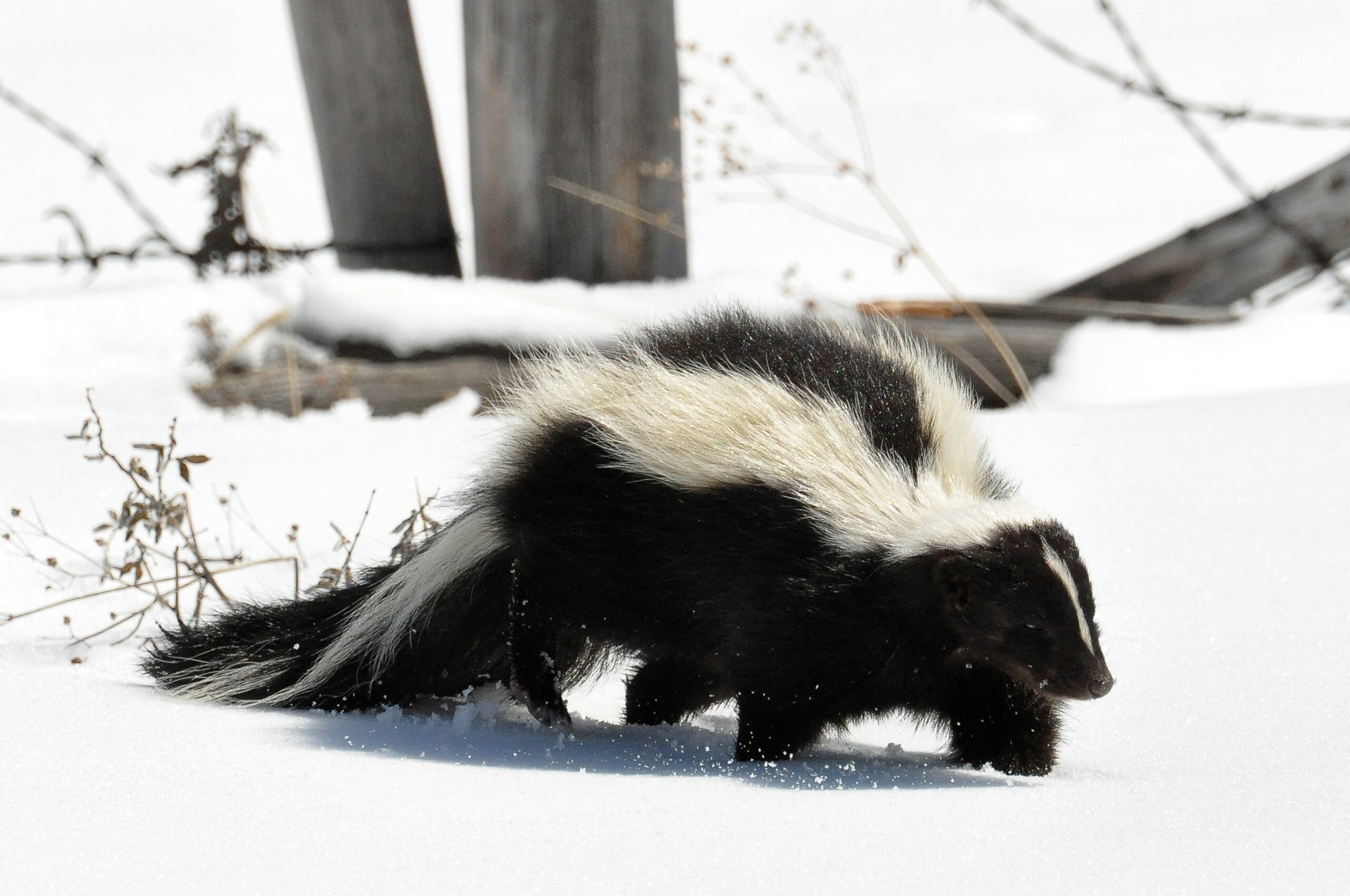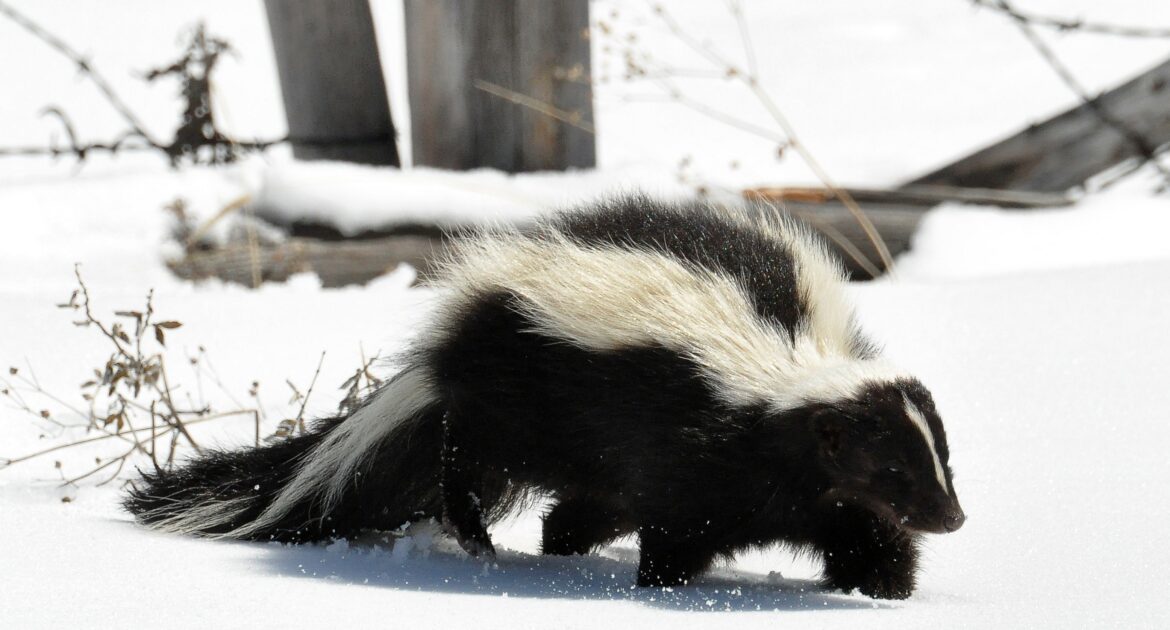Winter can bring unexpected challenges, but one of the most unpleasant is dealing with skunks. As temperatures drop, these mischievous creatures look for warm places to cozily nest and stay out of the cold. Skedaddle Humane Wildlife Control is here to help you get rid of skunks and keep them away safely and humanely. Understanding their behavior in winter is important so that you can take the right steps to protect your home and garden from an invasion.
Our experienced team can provide you with the knowledge and strategies needed to prevent these smelly animals from wreaking havoc. From knowledge of how skunks behave in the colder weather months, to how to keep them away, Skedaddle can help you solve all your wildlife-related problems.
Don’t let the winter blues bring you down with unwanted visitors – get your skunk removal in Huntingtown and keep your home safe!
The Winter Habits Of Skunks
During the winter, skunks enter a state of deep sleep, which is often misconstrued as hibernation. This is not entirely accurate. While they do limit their activity during cold months and sleep more than usual, they do not hibernate like some wildlife, such as bears. Instead, they snooze through the winter in long naps, in burrows that are warm and protected from the elements, waking intermittently to forage for food. This is what’s known as torpor – a state of decreased physiological activity in an animal, usually characterized by reduced metabolism and reaction times.
Where Skunks Nest in Winter
Skunks prepare for winter by creating warm, comfy burrows. These burrows are often in quiet, undisturbed spots like under your deck, porch, or foundation. Empty garden sheds and basements can also provide desirable nesting spots. Tightly packed leaves, grass, and other insulating materials are used to line the burrows, providing a warm sanctuary for their winter napping sessions. The danger lies in the damage they might initiate while trying to access these vilified spots. Skunks can create holes, hollow out areas, and gnaw on structural elements, thereby causing significant property damage.
Foraging Habits
Contrary to popular belief, skunks do not store food for the winter season like squirrels. Instead, they bulk up during the fall to survive off their fat reserves through the colder months. They will, however, venture out of their burrows during warmer spells in search of food. During these ventures, they can cause chaos in gardens and lawns as they dig up the landscape in their pursuit for grubs, earthworms, and berries.
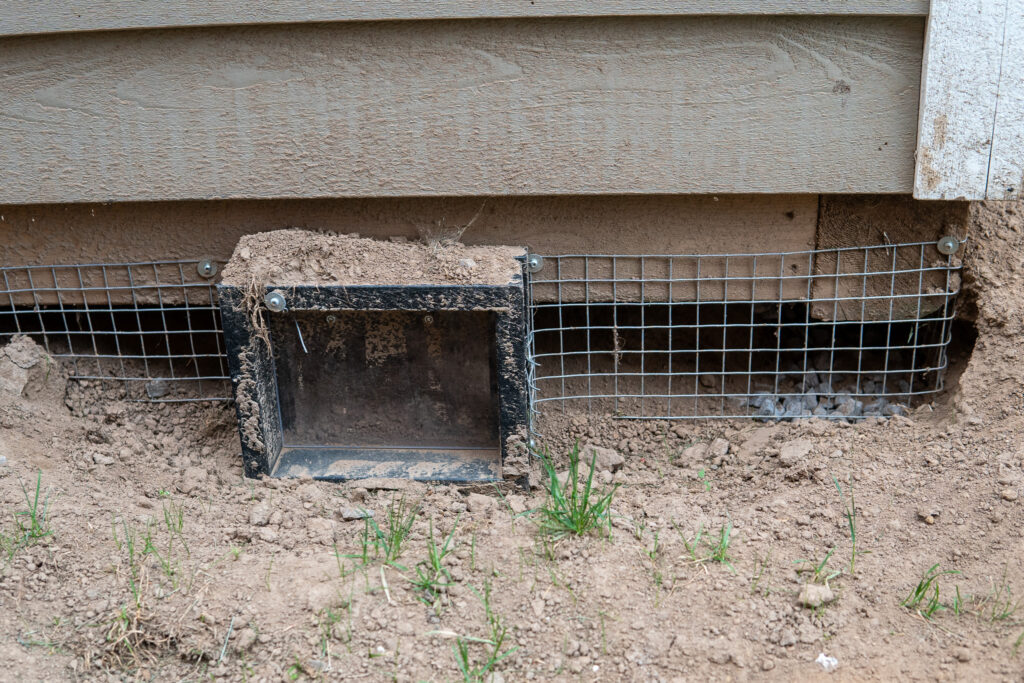
Identifying Skunk Activity In Winter
Identifying skunk activity during the colder months can be trickier than in other seasons. However, there are certain telltale signs that these animals leave behind. By paying close attention to your surroundings, you can ascertain whether your property has become a winter haven.
Odor
The most obvious sign of a skunk’s presence is their infamous smell. They release a pungent, unmistakable odor whenever they feel threatened or are preparing to mate- an activity usually carried out during the winter months. If you notice this familiar foul scent lingering around your yard or home, there’s a good chance a skunk has taken up residence nearby.
Digging Signs
Skunks are notorious diggers. They forage for food in the ground and are known to make burrows or make existing ones their home. During the colder weather, their digging behavior doesn’t stop. If you notice small holes in your garden or lawn or disruption to your outdoor garbage bins, this could indicate their presence. Take note, these holes are usually cone-shaped and about 3-4 inches in diameter.
Tracks
In areas with snow, another straightforward way to identify activity is by looking for their tracks. Skunk footprints have a unique pattern because they have five toes on both their front and back feet. Incidentally, their footprints can look somewhat human-like, but much smaller, making them easily distinguishable from other animals.
Sounds
They are not the most vocal animals, but skunks do create sounds that are characteristic of their kind. If you live in close proximity to a den, you might hear mild squealing or scurrying sounds. The young ones especially may produce these sounds when they feel threatened or are competing for food.
Being able to identify the signs of activity in winter is the first step to dealing with potential skunk problems. A word of caution though: skunks are protected wildlife in many areas and require humane removal strategies.
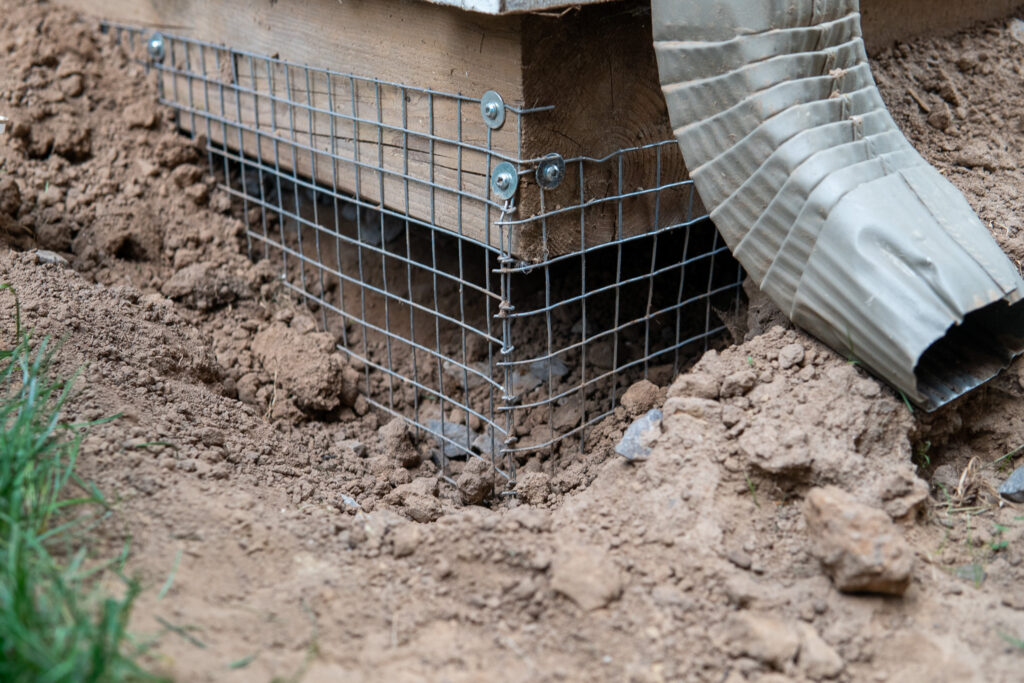
Effective Ways To Deter Skunks In Winter
Skunks seek warm and hospitable places to nest and forage. They may end up being uninvited guests around or even inside your home. However, certain practices can discourage the wildlife from venturing too close. The following are some effective methods:
Securing Trash and Compost
Skunks are known to be scavengers. They take advantage of unsecured trash and compost that offer an easy and plentiful food source. You can deter them by properly securing your bins and compost piles. Strong, sealable containers that can’t be easily tipped over or penetrated are your best defense against these sneaky invaders.
Installing Fencing
High-quality fencing can be an effective deterrent. Skunks are poor climbers, so installing a fence deep into the ground and above can keep them out. It’s important to inspect the fence frequently to ensure there are no openings through which they could squeeze.
Lighting and Noise Deterrents
Skunks are primarily nocturnal animals and naturally shy away from brightly lit areas. Installing motion-activated lights in your yard can deter them from approaching. Similarly, devices that emit noises can also dissuade them since they dislike loud sounds. Keep in mind, that these devices should be moved around regularly to prevent wildlife from growing accustomed to them.
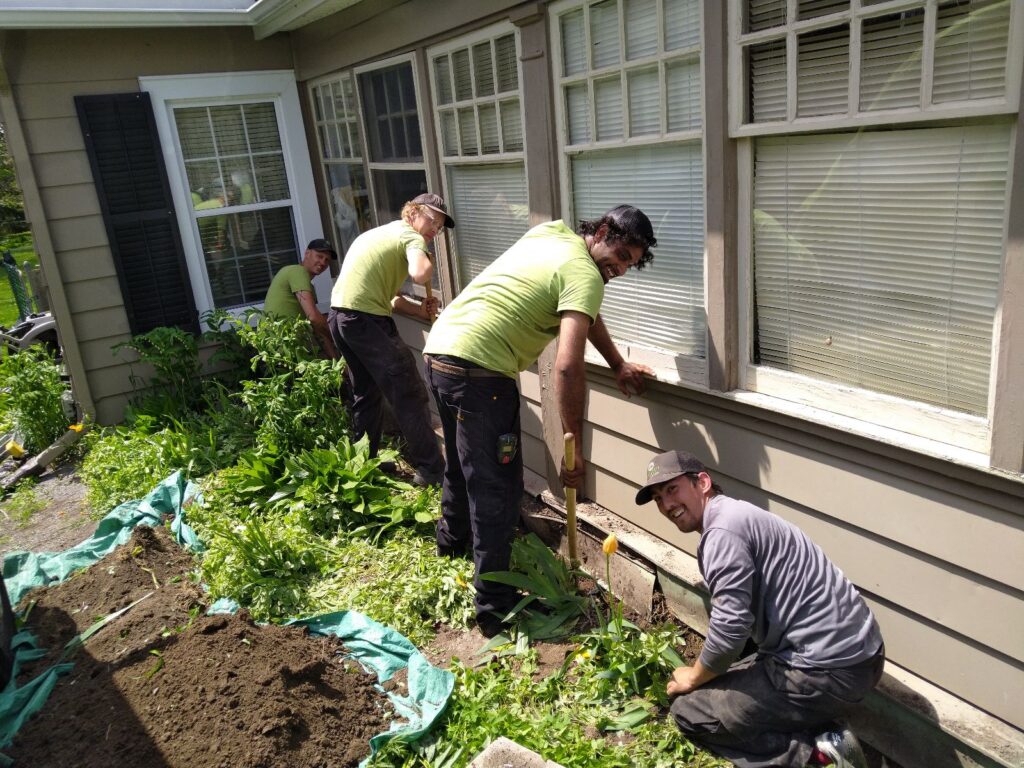
When To Call Skedaddle For Wildlife Removal In Huntingtown
Knowing when to call a professional skunk removal service can save you a lot of trouble and keep your home in Huntingtown wildlife-free. The following are scenarios when you might need to reach out to the experts at Skedaddle:
Repeated Infestations
If you notice that skunks keep returning to your property despite your best efforts at deterrence, it’s time to call in the professionals. A consistent pattern of skunk visits indicates that your premises offer an attractive habitat for them. Our specialists at Skedaddle can identify the attraction and help to rectify the problem.
Damage Caused by Skunks
Skunks can cause significant damage to your property, particularly your yard and garden areas. If you see dug-out patches in your lawn, holes in your flower beds, or destroyed compost piles, you likely have a problem. A professional service can remove the animal and provide advice on preventing future damage.
Babies or Families
If you spot baby skunks or a whole family on your property, professionals should handle the situation. Babies can spray, just like adults, and attempting to remove a family unit can result in a defensive spray from more than one simultaneously. Our professionals are trained to handle such delicate situations safely.
Sick or Injured
Kudos to your compassion if you notice a skunk that seems unwell or injured. However, approaching or trying to care for a sick or injured skunk is risky and should be avoided to prevent injury or potential transmission of diseases. A professional team can handle the situation in a humane and safe manner.
Let Experts At Skedaddle Take the Lead
While some skunk activity can be deterred with the right measures, there are times when it’s best to call in the professionals. The Skedaddle team in Huntingtown is always ready to help with wildlife removal needs, ensuring your home remains a safe and comfortable place for you and your loved ones.
